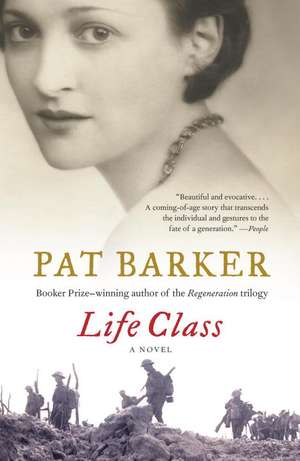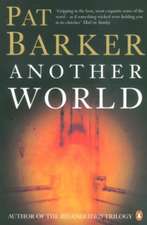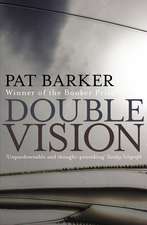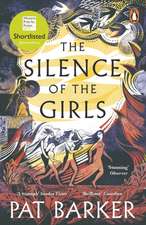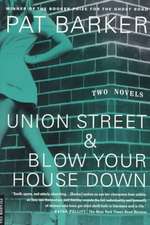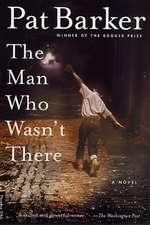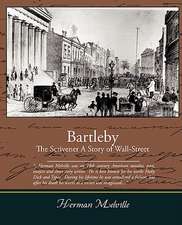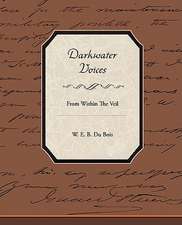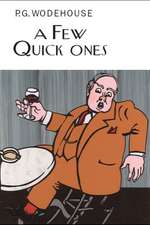Life Class
Autor Pat Barkeren Limba Engleză Paperback – 31 dec 2008
Vezi toate premiile Carte premiată
Benjamin Franklin Award (2009)
| Toate formatele și edițiile | Preț | Express |
|---|---|---|
| Paperback (2) | 46.85 lei 26-32 zile | +21.61 lei 7-13 zile |
| Penguin Books – 5 iun 2019 | 46.85 lei 26-32 zile | +21.61 lei 7-13 zile |
| Penguin Books – 6 aug 2008 | 52.51 lei 26-32 zile | +18.00 lei 7-13 zile |
Preț: 80.82 lei
Nou
Puncte Express: 121
Preț estimativ în valută:
15.48€ • 15.95$ • 12.99£
15.48€ • 15.95$ • 12.99£
Carte indisponibilă temporar
Doresc să fiu notificat când acest titlu va fi disponibil:
Se trimite...
Preluare comenzi: 021 569.72.76
Specificații
ISBN-13: 9780307387806
ISBN-10: 0307387801
Pagini: 320
Dimensiuni: 138 x 202 x 17 mm
Greutate: 0.23 kg
Editura: Anchor Books
ISBN-10: 0307387801
Pagini: 320
Dimensiuni: 138 x 202 x 17 mm
Greutate: 0.23 kg
Editura: Anchor Books
Extras
1
They’d been drawing for over half an hour. There was no sound except for the slurring of pencils on Michelet paper or the barely perceptible squeak of charcoal. At the center of the circle of students, close to the dais, a stove cast a barred red light onto the floor. The smell of burning coke mingled with other smells: sweat, hot cloth, cigar and tobacco smoke. Now and again you could hear the soft pop of lips inhaling and another plume of blue smoke would rise to join the pall that hung over the whole room.
Nobody spoke. You were not allowed to talk in the life class. In the Antiques Room, where they spent the mornings copying from casts of Classical and Renaissance sculpture, talking was permitted, and the students—a few of the women, in particular—chattered nonstop. Here, apart from the naked woman on the dais, the atmosphere was not unlike a men’s club. The women students had their own separate life class somewhere on the lower floor. Even the Slade, scandalously modern in most respects, segregated the sexes when the naked human body was on display.
Paul Tarrant, sitting on the back row, as far away from the stove as he could get, coughed discreetly into his handkerchief. He was still struggling to throw off the bronchitis that had plagued him all winter and the fumes irritated his lungs. He’d finished his drawing, or at least he’d reached the point where he knew that further work would only make matters worse. He leaned back and contemplated the page. Not one of his better efforts.
He knew, without turning to look, that Professor Tonks had entered the room. It was always like this with Tonks, the quiet entry. He seemed to insinuate himself into the room. You knew he’d arrived only when you saw the students sitting opposite straighten their shoulders or bend more anxiously over their drawings. Tonks was a dark planet whose presence could be deduced only by a deviation in the orbit of other bodies.
Paul risked a sidelong glance. Tonks, bent at the shoulders like a butcher’s hook, was scrutinizing a student’s drawing. He said something, too low to be heard. The student mumbled a reply and Tonks moved on. Another student, then another. He was working his way along the back row, passing quickly from drawing to drawing. Sugden brought him to a halt. Sugden was hopeless, among the worst in the class. Tonks always spent more time on the weaker students, which indicated a kindly disposition, perhaps, or would have done had he not left so many of them in tatters.
So far his progress had been quiet, but now suddenly he raised his voice.
“For God’s sake, man, look at that arm. It’s got no more bones in it than a sausage. Your pencil’s blunt, your easel’s wobbly, you’re working in your own light, and you seem to have no grasp of human anatomy at all. What is the point?”
Many of Tonks’s strictures related to the students’ ignorance of anatomy. “Is it a blancmange?” had been one of his comments on Paul’s early efforts. Tonks had trained as a surgeon and taught anatomy to medical students before Professor Browne invited him to join the staff at the Slade. His eye, honed in the dissecting room and the theater, detected every failure to convey what lay beneath the skin. “Look for the line,” he would say again and again. “Drawing is an explication of the form.” It was one of the catchphrases Slade students sometimes chanted to each other. Along with: “I thy God am a jealous God. Thou shalt have none other Tonks but me.”
There was no getting round Tonks’s opinion of your work. Tonks was the Slade.
Paul looked at his drawing. If he’d been dissatisfied before he was dismayed now. As Tonks drew closer, his drawing became mysteriously weaker. Not only had he failed to “explicate the form,” but he’d also tried to cover up the failure with all the techniques he’d learned before coming to the Slade: shading, cross–hatching, variations in tone, even, now and then, a little discreet smudging of the line. In the process, he’d produced the kind of drawing that at school—and even, later, in night classes—had evoked oohs and ahs of admiration. Once, not so long ago, he’d have been pleased with this work; now, he saw its deficiencies only too clearly. Not only was the drawing bad, it was bad in exactly the way Tonks most despised. More than just a failure, it was a dishonest failure.
He took a deep breath. A second later Tonks’s shadow fell across the page, though he immediately moved a little to one side so that the full awfulness could be revealed. A long pause. Then he said conversationally, as if he were really interested in the answer, “Is that really the best you can do?”
“Yes.”
“Then why do it?”
Why indeed? Paul made no reply and after a moment Tonks moved on. At last, from somewhere, a rush of anger. “If I knew how to draw I wouldn’t need to be here at all, would I?”
He’d shouted, though he hadn’t meant to. All around people were turning to stare at him. Without giving Tonks a chance to reply, he threw down his pencil and walked out.
The corridor, empty between classes, stretched ahead of him. Its walls seemed to throb with his anger. The heat of it kept him going all the way to the main entrance and out into the quad. There he stopped and looked around him. What was he doing, storming out like that in the middle of a session? It was asking for trouble. And yet he knew he couldn’t go back. Students were sitting in small circles on the grass, laughing and talking, but they were mainly medical students enjoying a break between lectures, and there was nobody he knew. He threaded his way between the groups and out through the iron gates into Gower Street. At first he started to walk towards Russell Square, the nearest green space, but that wasn’t far enough. He needed to get right away, to think about his future in unfamiliar surroundings, because although, in one sense, his spat with Tonks had been relatively trivial, he felt that it marked a crisis in his career.
If you could call it a career.
*
He’d been walking round and round the lake for over an hour. His shadow, hardly visible when he first entered the park, now trotted at his heels like a stunted child. Round and round the problem went: no talent, wasting my time, better leave now and get a job. Or would it be more sensible to wait till the end of the year? He’d always intended to spend two years at the Slade and it seemed a bit feeble to leave before the first year was over, but then what was the point of continuing when his work not only failed to improve but actually seemed to deteriorate from week to week? It wasn’t as if he had unlimited money. He had a legacy from his grandmother, a slum landlord of quite astonishing rapacity who, by skimping on repairs and bringing up her large family on bread and scrape, had salted away a great deal of money in the box under her bed. What would her advice have been?
—Have nowt to do with nancy–boy stuff like art, there’s no money in that, and if you’ve got tangled up in it, lad, get out as fast as you can.
She’d been horrified when he went to work as an orderly in a hospital; real men earned their living by their own sweat and blood.
This was getting him nowhere. He found a bench and sat down, feeling the heat heavy on his shoulder blades. Craning his neck, he looked up at the tops of the trees, dark against the pulsing sun. Everything was flooded in lemony light. After a while he straightened up and looked about him, and it was then that he became aware of the girl on the other side of the lake.
A young girl, still with the childish blondeness that rarely survives into adult life, was wandering along the waterside. She was about fifteen, dressed in the shabby, respectable clothes of a maid, her only ornament a bunch of purple velvet violets pinned to the crown of her black straw hat. Sent into service, he guessed, away from her own overcrowded home. Girls that age are not easily accommodated in two–bedroomed houses, parents needing privacy, adolescent brothers curious, younger children sleeping four to a bed. This would be her afternoon off.
He tracked her with his eyes. A few paces further on she stopped, standing at the water’s edge looking down into the depths. Thinking they were going to be fed, swans, geese, and ducks set off towards her from all parts of the lake, so that the slim, gray figure quickly became the focal point of thirty or more converging lines. There was something odd about her and at first he couldn’t think what it was, but then he noticed that the buttons on her blouse had been done up in the wrong sequence. There was a glimpse of what might have been bare flesh between the edge of her blouse and her skirt. He kept expecting her to pull her shawl more closely round her or turn away and put herself to rights. But she did neither. Instead she stumbled a few feet further along, then stopped again, the shadows of rippling water playing over her face and neck.
She was swaying on her feet. At first he thought nothing of it, but then it happened again, and again. It came to him in a flash. Incredibly, this fresh–faced, innocent–looking girl was drunk. He looked up and down the path to see if she was alone and there, about twenty yards behind, stood a portly, middle–aged man watching her. Ah, authority. Probably the man was her employer—he was too well–dressed to be her father—but then, if he had a legitimate reason to be interested in her, why did he not approach and take control of the situation? Instead of strolling along at that loitering, predatory pace, his eyes fixed on her back. No, he was nothing to do with her—unless of course he was the man responsible for her condition. That, or he’d noticed the state she was in and recognized easy pickings when he saw them.
Bastard. All Paul’s long frustration in the life class—a frustration which could never be vented on Professor Tonks because he respected the man too much—boiled over into hatred of this man with his florid cheeks and his expensive suit and his silver–topped cane. He jumped up and began striding along the path, meaning to cut them off before they reached the gate.
The sun, past its height, had begun to throw long bluish shadows across the grass. Paul’s heels rang out on the pavement as he half walked, half ran round the head of the lake. He felt vigorous, clear. All the disappointments and complexities of the past few months had dropped away. He drew level with the girl, who had once more paused and was gazing out over the lake. A few yards away from her the geese were beginning to come ashore. Big, webbed yellow feet made puddles of wet on the dusty path as they lurched towards her, open beaks hissing. Startled, she took off her shawl and flapped it at them until at last, honking and hissing, they flopped, one by one, into the water again.
Now that Paul was closer he could see that her hair had slipped loose from the pins at the nape of her neck and straggled down her back. The blouse was badly torn, it must have been ripped off her back. Looking down, he saw that only one foot had a stocking on; the other was thrust bare into a down–at–heel shoe. He looked at the slim, naked ankle and felt a tweak of lust that hardly broke the surface of his consciousness before it was transmuted into anger. Who had done this to her? She was such a child. He was afraid to startle her by speaking to her and, anyway, she might well misconstrue his intentions.
The middle–aged man had stopped a few yards away and was gazing at him with obvious resentment. Paul turned to stare at him. Medium height, heavily built, bulky about the shoulders and chest, but a lot of that was flab. His trouser buttons strained to accommodate his postprandial belly. His eyes kept sliding away from Paul to the girl and back again. At last he stepped to one side, ostentatiously allowing Paul plenty of room to pass. Paul held his ground.
Meanwhile, the girl tried to move on, but staggered and almost fell. She seemed disorientated now and after standing for a moment simply flopped down on the path. With a glance at Paul the man moved towards her. Paul stepped forward to cut him off.
“What do you want?” the man said.
A Yorkshire accent? “Are you responsible for this?”
“What?”
“This.”
“I never saw her before in my life.” Grayish–green eyes, the color of infected phlegm. “I was going to put her in a cab and send her back to her family.”
“ ’Course you were.”
“Do you have a better idea?”
“We could take her to the police station.”
“Oh, I doubt if she’d thank you for that.”
“Let’s ask her, shall we?”
The man leaned forward in a fug of port–wine breath. “Look, piss off, will you? I saw her first.”
“I’m not going anywhere.”
“It’s not your business.” A hiss the geese would have been proud of. “For God’s sake, look at her. Don’t you think you’re closing the stable door after the horse’s bolted?”
“And a slice off a cut cake won’t be missed. What a fund of homely northern wisdom you are.”
Gooseberry–green eyes swelled to bursting. A purpling of pendulous cheeks, then Paul caught a flash of silver from the upraised cane. He raised his arm to break the blow and pain jolted from his forearm into his shoulder. Now he had his excuse, his legitimate reason. He twisted the cane out of the other’s hand and brought it crashing down onto his shoulders, once, twice, three times, and then he lost count. There was no reason ever to stop, he’d never felt such joy, strength seemed to flow into him from the sky. But a minute later, as the man turned away, presenting only his bowed shoulders to the blows, Paul started to recover himself. In a final burst of exhilaration, he sent the cane whirling in a broad arc over the lake, its silver knob flashing in the sun.
“Fetch!” he shouted, feeling his spit fly. “Go on, boy, fetch!”
The cane plopped and sank. Concentric rings of ripples laced with foam spread out over the surface of the water. Its owner turned to face Paul, goosegog eyes red veined with rage. “Do you know how much that cost?”
“More than the girl, I’ll bet.”
From the Hardcover edition.
They’d been drawing for over half an hour. There was no sound except for the slurring of pencils on Michelet paper or the barely perceptible squeak of charcoal. At the center of the circle of students, close to the dais, a stove cast a barred red light onto the floor. The smell of burning coke mingled with other smells: sweat, hot cloth, cigar and tobacco smoke. Now and again you could hear the soft pop of lips inhaling and another plume of blue smoke would rise to join the pall that hung over the whole room.
Nobody spoke. You were not allowed to talk in the life class. In the Antiques Room, where they spent the mornings copying from casts of Classical and Renaissance sculpture, talking was permitted, and the students—a few of the women, in particular—chattered nonstop. Here, apart from the naked woman on the dais, the atmosphere was not unlike a men’s club. The women students had their own separate life class somewhere on the lower floor. Even the Slade, scandalously modern in most respects, segregated the sexes when the naked human body was on display.
Paul Tarrant, sitting on the back row, as far away from the stove as he could get, coughed discreetly into his handkerchief. He was still struggling to throw off the bronchitis that had plagued him all winter and the fumes irritated his lungs. He’d finished his drawing, or at least he’d reached the point where he knew that further work would only make matters worse. He leaned back and contemplated the page. Not one of his better efforts.
He knew, without turning to look, that Professor Tonks had entered the room. It was always like this with Tonks, the quiet entry. He seemed to insinuate himself into the room. You knew he’d arrived only when you saw the students sitting opposite straighten their shoulders or bend more anxiously over their drawings. Tonks was a dark planet whose presence could be deduced only by a deviation in the orbit of other bodies.
Paul risked a sidelong glance. Tonks, bent at the shoulders like a butcher’s hook, was scrutinizing a student’s drawing. He said something, too low to be heard. The student mumbled a reply and Tonks moved on. Another student, then another. He was working his way along the back row, passing quickly from drawing to drawing. Sugden brought him to a halt. Sugden was hopeless, among the worst in the class. Tonks always spent more time on the weaker students, which indicated a kindly disposition, perhaps, or would have done had he not left so many of them in tatters.
So far his progress had been quiet, but now suddenly he raised his voice.
“For God’s sake, man, look at that arm. It’s got no more bones in it than a sausage. Your pencil’s blunt, your easel’s wobbly, you’re working in your own light, and you seem to have no grasp of human anatomy at all. What is the point?”
Many of Tonks’s strictures related to the students’ ignorance of anatomy. “Is it a blancmange?” had been one of his comments on Paul’s early efforts. Tonks had trained as a surgeon and taught anatomy to medical students before Professor Browne invited him to join the staff at the Slade. His eye, honed in the dissecting room and the theater, detected every failure to convey what lay beneath the skin. “Look for the line,” he would say again and again. “Drawing is an explication of the form.” It was one of the catchphrases Slade students sometimes chanted to each other. Along with: “I thy God am a jealous God. Thou shalt have none other Tonks but me.”
There was no getting round Tonks’s opinion of your work. Tonks was the Slade.
Paul looked at his drawing. If he’d been dissatisfied before he was dismayed now. As Tonks drew closer, his drawing became mysteriously weaker. Not only had he failed to “explicate the form,” but he’d also tried to cover up the failure with all the techniques he’d learned before coming to the Slade: shading, cross–hatching, variations in tone, even, now and then, a little discreet smudging of the line. In the process, he’d produced the kind of drawing that at school—and even, later, in night classes—had evoked oohs and ahs of admiration. Once, not so long ago, he’d have been pleased with this work; now, he saw its deficiencies only too clearly. Not only was the drawing bad, it was bad in exactly the way Tonks most despised. More than just a failure, it was a dishonest failure.
He took a deep breath. A second later Tonks’s shadow fell across the page, though he immediately moved a little to one side so that the full awfulness could be revealed. A long pause. Then he said conversationally, as if he were really interested in the answer, “Is that really the best you can do?”
“Yes.”
“Then why do it?”
Why indeed? Paul made no reply and after a moment Tonks moved on. At last, from somewhere, a rush of anger. “If I knew how to draw I wouldn’t need to be here at all, would I?”
He’d shouted, though he hadn’t meant to. All around people were turning to stare at him. Without giving Tonks a chance to reply, he threw down his pencil and walked out.
The corridor, empty between classes, stretched ahead of him. Its walls seemed to throb with his anger. The heat of it kept him going all the way to the main entrance and out into the quad. There he stopped and looked around him. What was he doing, storming out like that in the middle of a session? It was asking for trouble. And yet he knew he couldn’t go back. Students were sitting in small circles on the grass, laughing and talking, but they were mainly medical students enjoying a break between lectures, and there was nobody he knew. He threaded his way between the groups and out through the iron gates into Gower Street. At first he started to walk towards Russell Square, the nearest green space, but that wasn’t far enough. He needed to get right away, to think about his future in unfamiliar surroundings, because although, in one sense, his spat with Tonks had been relatively trivial, he felt that it marked a crisis in his career.
If you could call it a career.
*
He’d been walking round and round the lake for over an hour. His shadow, hardly visible when he first entered the park, now trotted at his heels like a stunted child. Round and round the problem went: no talent, wasting my time, better leave now and get a job. Or would it be more sensible to wait till the end of the year? He’d always intended to spend two years at the Slade and it seemed a bit feeble to leave before the first year was over, but then what was the point of continuing when his work not only failed to improve but actually seemed to deteriorate from week to week? It wasn’t as if he had unlimited money. He had a legacy from his grandmother, a slum landlord of quite astonishing rapacity who, by skimping on repairs and bringing up her large family on bread and scrape, had salted away a great deal of money in the box under her bed. What would her advice have been?
—Have nowt to do with nancy–boy stuff like art, there’s no money in that, and if you’ve got tangled up in it, lad, get out as fast as you can.
She’d been horrified when he went to work as an orderly in a hospital; real men earned their living by their own sweat and blood.
This was getting him nowhere. He found a bench and sat down, feeling the heat heavy on his shoulder blades. Craning his neck, he looked up at the tops of the trees, dark against the pulsing sun. Everything was flooded in lemony light. After a while he straightened up and looked about him, and it was then that he became aware of the girl on the other side of the lake.
A young girl, still with the childish blondeness that rarely survives into adult life, was wandering along the waterside. She was about fifteen, dressed in the shabby, respectable clothes of a maid, her only ornament a bunch of purple velvet violets pinned to the crown of her black straw hat. Sent into service, he guessed, away from her own overcrowded home. Girls that age are not easily accommodated in two–bedroomed houses, parents needing privacy, adolescent brothers curious, younger children sleeping four to a bed. This would be her afternoon off.
He tracked her with his eyes. A few paces further on she stopped, standing at the water’s edge looking down into the depths. Thinking they were going to be fed, swans, geese, and ducks set off towards her from all parts of the lake, so that the slim, gray figure quickly became the focal point of thirty or more converging lines. There was something odd about her and at first he couldn’t think what it was, but then he noticed that the buttons on her blouse had been done up in the wrong sequence. There was a glimpse of what might have been bare flesh between the edge of her blouse and her skirt. He kept expecting her to pull her shawl more closely round her or turn away and put herself to rights. But she did neither. Instead she stumbled a few feet further along, then stopped again, the shadows of rippling water playing over her face and neck.
She was swaying on her feet. At first he thought nothing of it, but then it happened again, and again. It came to him in a flash. Incredibly, this fresh–faced, innocent–looking girl was drunk. He looked up and down the path to see if she was alone and there, about twenty yards behind, stood a portly, middle–aged man watching her. Ah, authority. Probably the man was her employer—he was too well–dressed to be her father—but then, if he had a legitimate reason to be interested in her, why did he not approach and take control of the situation? Instead of strolling along at that loitering, predatory pace, his eyes fixed on her back. No, he was nothing to do with her—unless of course he was the man responsible for her condition. That, or he’d noticed the state she was in and recognized easy pickings when he saw them.
Bastard. All Paul’s long frustration in the life class—a frustration which could never be vented on Professor Tonks because he respected the man too much—boiled over into hatred of this man with his florid cheeks and his expensive suit and his silver–topped cane. He jumped up and began striding along the path, meaning to cut them off before they reached the gate.
The sun, past its height, had begun to throw long bluish shadows across the grass. Paul’s heels rang out on the pavement as he half walked, half ran round the head of the lake. He felt vigorous, clear. All the disappointments and complexities of the past few months had dropped away. He drew level with the girl, who had once more paused and was gazing out over the lake. A few yards away from her the geese were beginning to come ashore. Big, webbed yellow feet made puddles of wet on the dusty path as they lurched towards her, open beaks hissing. Startled, she took off her shawl and flapped it at them until at last, honking and hissing, they flopped, one by one, into the water again.
Now that Paul was closer he could see that her hair had slipped loose from the pins at the nape of her neck and straggled down her back. The blouse was badly torn, it must have been ripped off her back. Looking down, he saw that only one foot had a stocking on; the other was thrust bare into a down–at–heel shoe. He looked at the slim, naked ankle and felt a tweak of lust that hardly broke the surface of his consciousness before it was transmuted into anger. Who had done this to her? She was such a child. He was afraid to startle her by speaking to her and, anyway, she might well misconstrue his intentions.
The middle–aged man had stopped a few yards away and was gazing at him with obvious resentment. Paul turned to stare at him. Medium height, heavily built, bulky about the shoulders and chest, but a lot of that was flab. His trouser buttons strained to accommodate his postprandial belly. His eyes kept sliding away from Paul to the girl and back again. At last he stepped to one side, ostentatiously allowing Paul plenty of room to pass. Paul held his ground.
Meanwhile, the girl tried to move on, but staggered and almost fell. She seemed disorientated now and after standing for a moment simply flopped down on the path. With a glance at Paul the man moved towards her. Paul stepped forward to cut him off.
“What do you want?” the man said.
A Yorkshire accent? “Are you responsible for this?”
“What?”
“This.”
“I never saw her before in my life.” Grayish–green eyes, the color of infected phlegm. “I was going to put her in a cab and send her back to her family.”
“ ’Course you were.”
“Do you have a better idea?”
“We could take her to the police station.”
“Oh, I doubt if she’d thank you for that.”
“Let’s ask her, shall we?”
The man leaned forward in a fug of port–wine breath. “Look, piss off, will you? I saw her first.”
“I’m not going anywhere.”
“It’s not your business.” A hiss the geese would have been proud of. “For God’s sake, look at her. Don’t you think you’re closing the stable door after the horse’s bolted?”
“And a slice off a cut cake won’t be missed. What a fund of homely northern wisdom you are.”
Gooseberry–green eyes swelled to bursting. A purpling of pendulous cheeks, then Paul caught a flash of silver from the upraised cane. He raised his arm to break the blow and pain jolted from his forearm into his shoulder. Now he had his excuse, his legitimate reason. He twisted the cane out of the other’s hand and brought it crashing down onto his shoulders, once, twice, three times, and then he lost count. There was no reason ever to stop, he’d never felt such joy, strength seemed to flow into him from the sky. But a minute later, as the man turned away, presenting only his bowed shoulders to the blows, Paul started to recover himself. In a final burst of exhilaration, he sent the cane whirling in a broad arc over the lake, its silver knob flashing in the sun.
“Fetch!” he shouted, feeling his spit fly. “Go on, boy, fetch!”
The cane plopped and sank. Concentric rings of ripples laced with foam spread out over the surface of the water. Its owner turned to face Paul, goosegog eyes red veined with rage. “Do you know how much that cost?”
“More than the girl, I’ll bet.”
From the Hardcover edition.
Recenzii
“Beautiful and evocative . . . a coming-of-age story that transcends the individual and gestures to the fate of a generation.” —People“Life Class possesses organic power and narrative sweep. . . . Barker conjures up the hellish terrors of the war and its fallout with meticulous precision.” —Michiko Kakutani, The New York Times“Here, as in her best fiction, Barker unveils psychologically rich characters. . . and resists the trappings of a neat love story, reminding us once again that in art and life we remain infinitely mysterious.” —San Francisco Chronicle“A book so alive from page to page that it's difficult to put down.” —Seattle Times
Notă biografică
Pat Barker is most recently the author of the novels Toby's Room and Life Class, as well as the highly acclaimed Regeneration Trilogy: Regeneration; The Eye in the Door, winner of the Guardian Fiction Prize; and The Ghost Road, winner of the Booker Prize; as well as seven other novels. She lives in the north of England.
Descriere
From the Booker Prize-winning author of "The Regeneration Trilogy" comes an acknowledged masterpiece of modern fiction. "Life Class" is an exceptional new novel of artists and lovers caught in the maelstrom of the Great War.
Premii
- Benjamin Franklin Award Finalist, 2009
